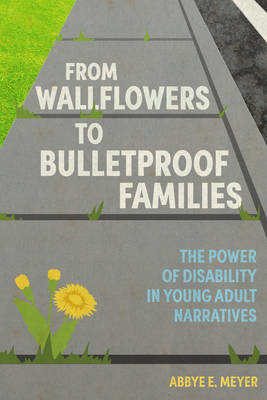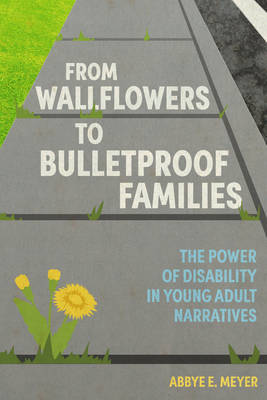
- Retrait gratuit dans votre magasin Club
- 7.000.000 titres dans notre catalogue
- Payer en toute sécurité
- Toujours un magasin près de chez vous
- Retrait gratuit dans votre magasin Club
- 7.000.0000 titres dans notre catalogue
- Payer en toute sécurité
- Toujours un magasin près de chez vous
From Wallflowers to Bulletproof Families
The Power of Disability in Young Adult Narratives
Abbye E Meyer
39,45 €
+ 78 points
Format
Description
Uses of disability in literature are often problematic and harmful to disabled people. This is also true, of course, in children's and young adult literature, but interestingly, when disability is paired and confused with adolescence in narratives, interesting, complex arcs often arise. In From Wallflowers to Bulletproof Families: The Power of Disability in Young Adult Narratives, author Abbye E. Meyer examines different ways authors use and portray disability in literature. She demonstrates how narratives about and for young adults differ from the norm. With a distinctive young adult voice based in disability, these narratives allow for readings that conflate and complicate both adolescence and disability. Throughout, Meyer examines common representations of disability and more importantly, the ways that young adult narratives expose these tropes and explicitly challenge harmful messages they might otherwise reinforce. She illustrates how two-dimensional characters allow literary metaphors to work, while forcing texts to ignore reality and reinforce the assumption that disability is a problem to be fixed. She sifts the freak characters, often marked as disabled, and she reclaims the derided genre of problem novels arguing they empower disabled characters and introduce the goals of disability-rights movements. The analysis offered expands to include narratives in other media: nonfiction essays and memoirs, songs, television series, films, and digital narratives. These contemporary works, affected by digital media, combine elements of literary criticism, narrative expression, disability theory, and political activism to create and represent the solidarity of family-like communities.
Spécifications
Parties prenantes
- Auteur(s) :
- Editeur:
Contenu
- Nombre de pages :
- 204
- Langue:
- Anglais
- Collection :
Caractéristiques
- EAN:
- 9781496837578
- Date de parution :
- 20-01-22
- Format:
- Livre broché
- Format numérique:
- Trade paperback (VS)
- Dimensions :
- 140 mm x 216 mm
- Poids :
- 263 g

Les avis
Nous publions uniquement les avis qui respectent les conditions requises. Consultez nos conditions pour les avis.






